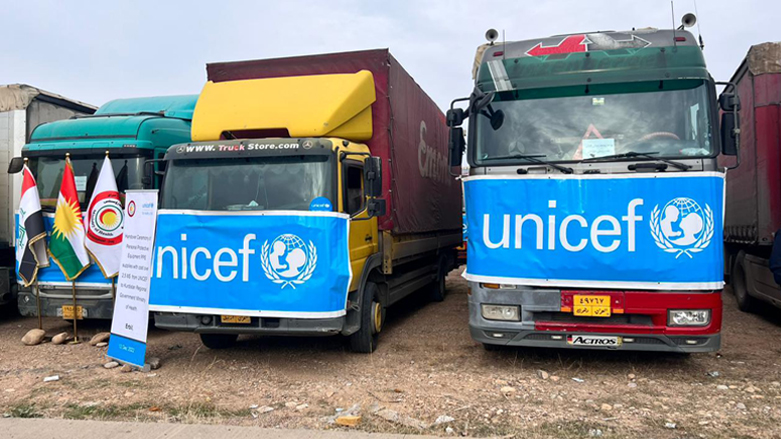UN’s Children Agency delivers $2.5 million-worth medical protection equipment to Kurdistan Region

ERBIL (Kurdistan 24) – The United Nations Children's Agency, known as UNICEF, on Monday delivered around 300 tons of medical Personal Protection Equipment (PPE) to Kurdish healthcare workers.
In a presser jointly attended by Kurdistan Region Minister of Health Saman Barzinji and the UNICEF Iraq Representative Sheema Sen Gupta, the $2.5 million-worth medical batch was officially handed over to the ministry.
The aid includes medical gowns, goggles, masks, and other protective equipment that can help protect health care workers at hospitals and intensive care units, Barzinji said, appreciating the international organization’s assistance, which he described as a “big support”.
“This is to protect the healthcare workers because as we know we still have COVID-19. They also protect health workers from other diseases,” Gupta told Kurdistan 24 following the announcement.
The organization has similarly provided another medical batch worth $1.3 million earlier this year, she added.
The COVID-19 pandemic and the restrictions that were imposed to stem the spread of the disease had hampered the immunization process of children in Iraq and the Kurdistan Region, according to officials.
After easing the restrictions, the ministry along with UNICEF launched vaccination campaigns, which had so far immunized 300,000 children since early 2022, Barzinji noted.
The vaccination rate for diphtheria, tetanus, pertussis (DTaP), and measles is at 90 percent, the UNICEF chief said.
“It has never been so high in the last twenty years,” she said, adding her organization would continue working with the Kurdish ministry in that regard.
The organization also helps the ministry to digitalize its medical services, including birth registration and data analysis, as part of strengthening the health system, according to Gupta.
Over 466,000 infections have been recorded by public health workers since the start of the pandemic in early 2020. The figures do not include those infections recorded by the private sector.
More than 7,400 people have died due to the infections during the same period.
Additional reporting by Nawras Abdulla
